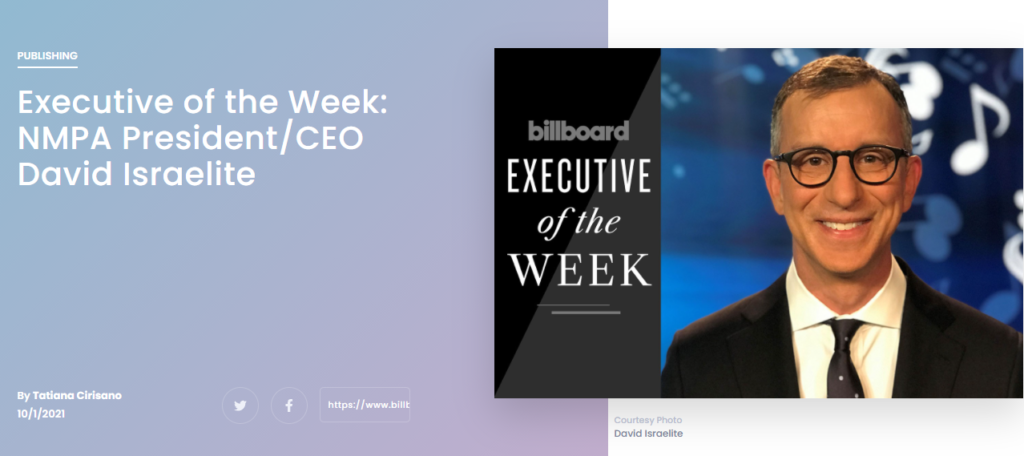Media
Executive of the Week: NMPA President/CEO David Israelite | Billboard

"We listen to songwriters and music publishers about what is important to them. We also make sure that when we bring a case, or threaten to bring a case, that we will win."
At the National Music Publishers' Association's virtual annual meeting in June, president/CEO David Israelite surprised the audience when -- just before introducing Taylor Swift as the year's songwriter honoree -- he announced a $200 million lawsuit against gaming platform Roblox.
The lawsuit, filed on behalf of a group of leading publishers including Universal Music Publishing Group, accused Roblox of hosting a library of thousands of unlicensed hits for users to broadcast within games. (Roblox denied these allegations.) Israelite framed the lawsuit as a reflection of the association's wider crackdown on unlicensed music in the gaming industry, and said that the NMPA would also ramp up its then-ongoing effort to pressure Amazon-owned livestreaming platform Twitch to secure licenses, too.
Less than four months later, thanks to Israelite's persistence, the NMPA has settled with both companies. Both the Roblox and Twitch agreements, which were announced a week apart, include a payment for past music usage as well as a time window to negotiate go-forward licenses. These milestone agreements earn Israelite the title of Billboard's Executive of the Week.
This isn't Israelite's first rodeo, or even his 10th. As the NMPA's leader since 2005, he has long worked to ensure that publishers and songwriters are getting paid their due when digital platforms like TikTok, YouTube and the Peloton app use music. "The NMPA has never lost a case in 17 years," he says, "and we are approaching the $1 billion mark for what we have returned to the industry from our efforts."
As music continues to infiltrate emerging online platforms -- and the music industry continues to seek new revenue sources through licensing -- the NMPA's role will become only more important. Here, Israelite discusses what the recent agreements mean and what platform he's eyeing next.
In the last two weeks, NMPA signed long-awaited deals with Twitch and Roblox. What key decisions did you make to help make that happen?
Music has always been an important part of gaming, but both Twitch and Roblox have been using music in completely new ways and growing at an exponential rate. Once we announced at our Annual Meeting in June that both of these sites would be a focus, the conversations progressed quickly, especially since both companies were anxious to find a way forward as partners.
What’s the significance of these deals?
These deals are significant because they re-enforce the principle that songs have tremendous value, and that any business model that involves using songs must license and pay for them.
One of them is a livestreaming service, the other is a gaming platform that exists in the metaverse. What do these deals signal about the future of music usage?
The music industry has changed. It no longer is just about broadcast radio and selling physical copies of records. Music publishers are ready and able to work with innovative new business models, but too often platforms that use music ask for forgiveness and not permission. These deals signal that it is always easier to work with songwriters and music publishers as early partners.
At the NMPA's annual meeting in June, you announced a crackdown on unlicensed music in the gaming industry, starting with Roblox and Twitch. With those initial agreements out of the way, how much is left to be done?
These deals have settled our disputes and provided a framework for building a path for the future, but we still need to work out the long-term relationships. The gaming space is now largely in good shape, but I suspect there will always be new entrants that pose new challenges.
You've now handled negotiations for music use in what feels like countless areas, from fitness to social media to tech to gaming. In your experience, what do these industries not understand about music, and what does the music industry not understand about them?
It’s completely unfathomable to me, but so many new entrants to these spaces still fail to license first and then build. The startup trajectory often places attracting users before monetization, but as new and innovative companies grow that utilize music as a core element of their platform, they must factor in paying songwriters. It’s unconscionable to me that so many still have to be told that if you make money using music, you have to pay for that music. There are still massive, and massively profitable companies like Twitter, who fail to see the obvious and ultimately will pay. If there’s something the music industry doesn’t always immediately grasp about tech platforms, occasionally it’s just the sheer untapped potential for songwriters to benefit from their contributions to new and emerging platforms where their work is utilized.
NMPA and RIAA Chiefs: Music Creators and Fans Deserve Better From Twitter (Guest Op-Ed)
With so many emerging avenues for music usage, how do you decide where to dedicate your time and what issues to prioritize?
We listen to songwriters and music publishers about what is important to them. We also make sure that when we bring a case, or threaten to bring a case, that we will win. That’s why NMPA has never lost a case in 17 years and we are approaching the $1 billion mark for what we have returned to the industry from our efforts.
So what's next on your agenda?
Twitter. All other significant social media companies have engaged with songwriters and music publishers, including YouTube, Facebook, Instagram, TikTok, Snap, and Triller. Twitter is the last large one who thinks it can build a business using music but not treat fairly those who make the music. We also are focused on the use of music in new models that use blockchain technology such as NFTs and so-called decentralized networks. Many of these platforms and payment methods are uncharted and we are working to ensure that they respect the rights of copyright owners.
Read on Billboard.
